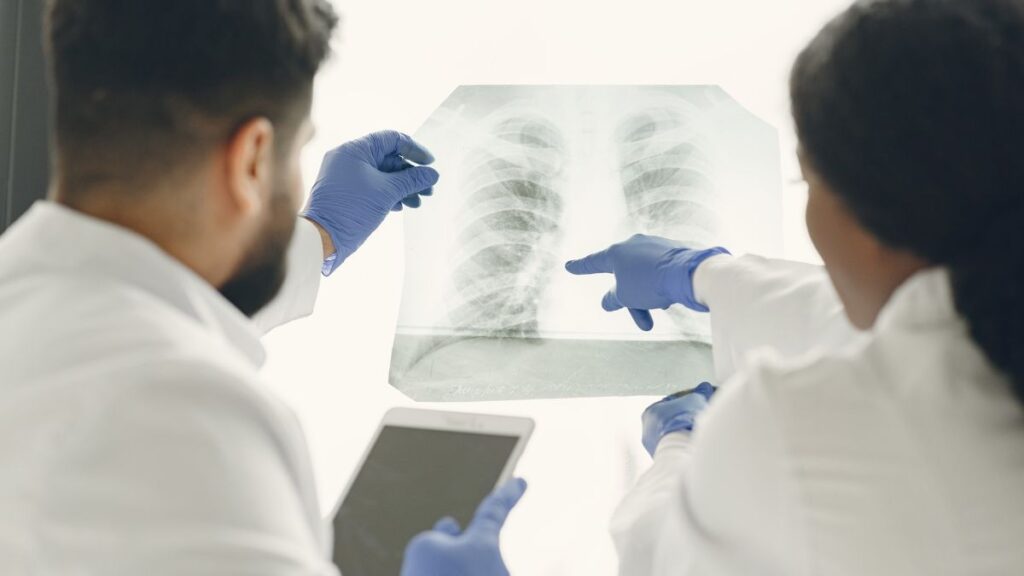Lung cancer remains the leading cause of cancer-related deaths worldwide, with non-small cell lung cancer (NSCLC) accounting for the majority of cases. The complexity of lung cancer is highlighted by the diversity of its genetic makeup, which significantly influences both diagnosis and treatment strategies. Among the various types of lung cancer, understanding the underlying molecular drivers is key to developing personalized therapies. These genetic alterations fuel the progression of the disease and are critical in guiding treatment decisions, ultimately improving patient outcomes.
Advancements in molecular profiling have transformed lung cancer care by enabling targeted therapies that are more precise and less toxic than traditional chemotherapy.
For healthcare professionals involved in the diagnosis and management of lung cancer, staying informed about these molecular drivers is essential, as they directly impact clinical decisions and future research directions.
Understanding Molecular Drivers
Molecular drivers are genetic modifications that allow cancer cells to grow and to survive. For lung cancer, the most common molecular drivers comprise mutations in genes, such as EGFR, KRAS, ALK, BRAF, and ROS1. The genetic modifications are identified using a variety of molecular diagnostic procedures that have become essential to the field of modern oncology.
The recognition of these drivers will allow for a more customized treatment approach, since treatments can be developed to target specific mutations.
For instance, patients suffering from EGFR mutations might benefit from tyrosine Kinase Inhibitors (TKIs) that have demonstrated impressive efficacy in extending the duration of survival and increasing your quality of life. Understanding the significance of these drivers is vital for HCPs as it influences treatment choices and allows for the choice of the best treatments for each patient.
The Importance of Molecular Testing
The use of molecular testing has been an essential element in the treatment and diagnosis of cancers in the lung. It involves the analysis of the tumor to determine specific genetic mutations or changes that may inform the treatment options. The process generally starts with a biopsy via bronchoscopy, or other imaging-guided techniques and then a thorough genomic profiling on the cancer.
This test offers several benefits that include the ability to identify mutations that are actionable and can be targeted using specific treatments. In the case of the tumor characterized by an ALK rearrangement that is present, the patient could be qualified to receive ALK inhibitors, which could result in better results when compared to standard chemotherapy. It is vital to HCPs to be aware of the most recent guidelines for molecular testing and make sure that patients get the right testing to maximize the treatment plan.
Clinical Implications of Molecular Drivers
The discovery of molecular drivers have significant clinical implications for the management of lung cancer. Targeted therapies designed around these drivers have changed treatment protocols which allows for more individualized and efficient approaches.
As an example, people suffering from NSCLC who are positive for EGFR mutations are often responsive to EGFR inhibitors, such as osimertinib which may result in improved rate of survival without progression.
Furthermore, targeted therapies are likely to have distinct side effects patterns compared with conventional chemotherapy, and could enhance patients’ quality of living.
HCPs should be aware of the changing treatment options for targeted therapies and their uses to ensure the best possible treatment of their patients. Additionally, knowing the molecular foundations of lung cancer could aid discussions regarding prognosis as well as the possibility of a treatment response.
Challenges in Molecular Profiling
Despite advancements in molecular profiling, a number of obstacles remain to its use in clinical routine. One of the major problems is the lack of sufficient tumor tissue to analyze. In certain instances patients can be diagnosed with advanced disease, and the ability to obtain a suitable biopsy is difficult. There could also be difficulties in the sensitivity or specificity of specific molecular tests, which can lead to false negatives or false positives.
Additionally, the rapid advancement of knowledge about molecular driver requires continuous training for HCPs to keep abreast of the latest research. To overcome these issues, it is necessary to employ an approach that is multidisciplinary, involving pathologists, oncologists as well as genetic counselors, to make sure that the patients get the best treatment based on the most current research.
Future Directions in Lung Cancer Research
The lung cancer landscape research is continually changing and is particularly advancing in the field of molecular drivers. Current studies are aiming to discover new genetic changes and the potential therapeutic implications. In addition, research is focusing on the design of combined treatments that focus on multiple molecular pathways simultaneously that could enhance the efficacy of treatments and eliminate resistance mechanisms.
The use of machine learning and artificial intelligence to analyze genomic data is an additional way to revolutionize the development of personalized treatment for lung cancer. When new targets for molecular therapy emerge, HCPs will need to adjust their treatment strategies to ensure that they are providing the most cutting-edge treatments in line with the most current research findings.
FAQs
What are the molecular factors that cause lung cancer?
The Molecular Drivers are genetic mutations or changes in cancer cells which promote their survival and growth. The most common drivers of lung cancer are mutations in genes like EGFR, KRAS, and ALK.
What is the procedure for molecular testing?
Molecular testing usually involves the analysis of the tumor samples obtained from biopsy. The biopsy specimen is then subjected to genome analysis to detect relevant mutations that could guide the treatment decision.
Why is molecular profiling so important in the treatment of lung cancer?
Molecular profiling can be used to tailor treatment strategies through the identification of specific mutations that could be treated using effective therapies, enhancing outcomes for patients and reducing undesirable negative side consequences.
What are the main challenges faced by molecular profiling to detect lung cancer?
Problems include the lack of sufficient tumor tissue, the limitations of test sensitivity and the requirement for continual information to keep HCPs updated on the most recent molecular factors and treatment options.
What’s the future for molecular drivers of lung cancer?
Future research will seek to identify new molecular targets, create combinations therapies, and incorporate modern technologies such as artificial intelligence to improve the effectiveness of personalized treatments for lung cancer.
Conclusion
The role of molecular drivers in the diagnosis of lung cancer and treatment is vital to the field of modern oncology. By gaining a better understanding of the genetic landscape that is associated with lung cancer, health professionals can make informed choices which lead to more effective and customized treatments. The advances in molecular diagnostics and targeted therapies have revolutionized the treatment of lung cancer, providing new possibilities for patients.
There are challenges to overcome constant education and research is essential in order to fully grasp how molecular factors improve patient outcomes. As the field develops, being informed of the latest advances will enable HCPs to provide the best healthcare possible, ultimately improving outcomes and better the quality of life in patients fighting lung cancer.







